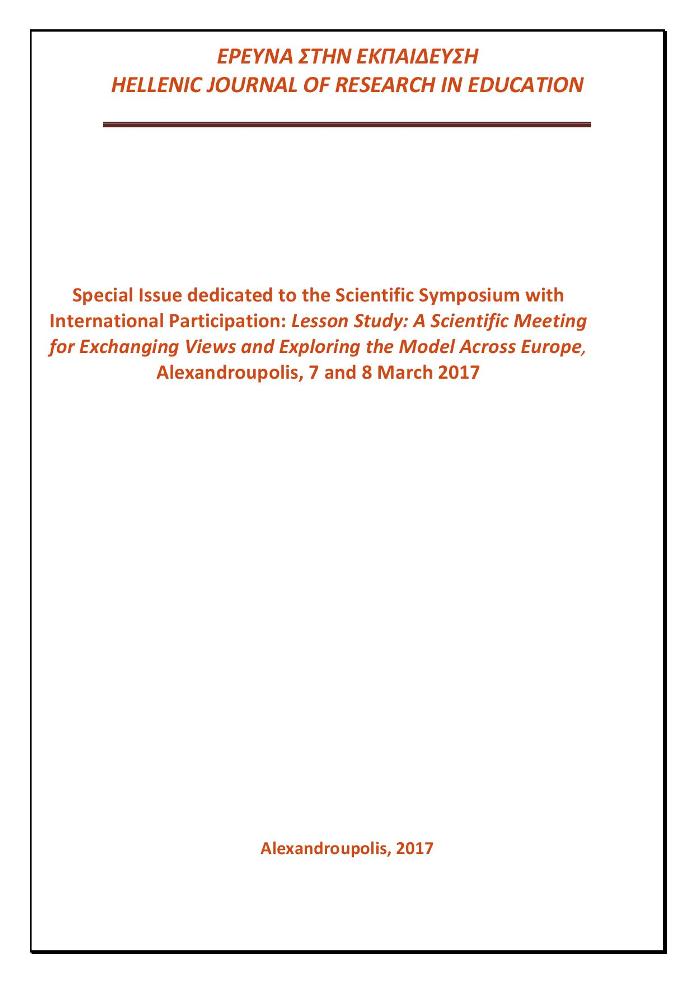Ruptures and continuities between kindergarten and the first years of primary school

Abstract
The aim of this article is to present the results of a lesson study which describes and analyzes the issues of transition between the kindergarten and the first grade of primary school. The lesson study was conducted with three groups of 10 teachers who teach the first four grades of elementary education, namely the kindergarten and first as well as the second year of primary school. Consequently, each team chose an item from the basic principles of subject-based teaching and learning applicable to the first four years of schooling. Each lesson was implemented in a kindergarten as well as in a primary classroom setting and observed by group members. Results from observations show individual rather than collective differences in teaching styles and practices of kindergarten and primary teachers in different levels. However, these differences are not clearly visible as they should be. Consequently, we’ll argue that it is possible to bridge what these teachers believe as a “necessary rift” in their teacher styles and practices through mentoring.
Article Details
- How to Cite
-
Clerc-Georgy, A., & Kappeler, G. (2017). Ruptures and continuities between kindergarten and the first years of primary school. Hellenic Journal of Research in Education, 6(2), 1–10. https://doi.org/10.12681/hjre.14844
- Section
- Articles

This work is licensed under a Creative Commons Attribution-NonCommercial-ShareAlike 4.0 International License.
Authors who publish with this journal agree to the following terms:
- Authors retain copyright and grant the journal right of first publication with the work simultaneously licensed under a CC-BY-NC-SA that allows others to share the work with an acknowledgement of the work's authorship and initial publication in this journal.
- Authors are able to enter into separate, additional contractual arrangements for the non-exclusive distribution of the journal's published version of the work (e.g. post it to an institutional repository or publish it in a book), with an acknowledgement of its initial publication in this journal.
- Authors are permitted and encouraged to post their work online (preferably in institutional repositories or on their website) prior to and during the submission process, as it can lead to productive exchanges, as well as earlier and greater citation of published work (See The Effect of Open Access).


